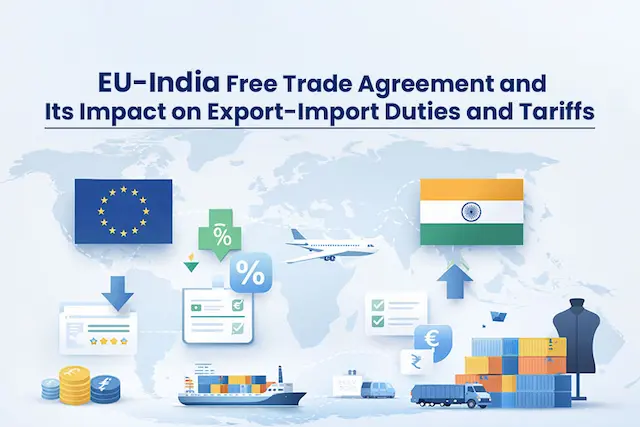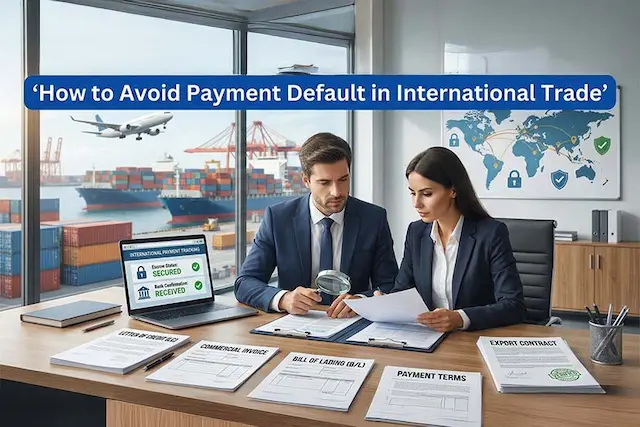The Export Credit Guarantee Corporation of India, commonly known as ECGC, plays a pivotal role in supporting India’s export sector by mitigating risks associated with international trade and facilitating its growth.
This government-backed entity provides export credit insurance and related services to exporters, enabling them to expand their reach in global markets with confidence.
Over the years, the Export Credit Guarantee Corporation of India has demonstrated its value to Indian exporters. It shoulders a substantial portion of the losses incurred, typically covering 80% to 90% of the total loss. This means that exporters are only responsible for bearing the remaining 10% to 20% of the loss themselves.
In this comprehensive article, we will delve into the various aspects of ECGC, its functions, significance, and the impact it has on India’s export industry.
Key Takeaways!
ECGC, or the Export Credit Guarantee Corporation of India, is a critical supporter of the country’s export sector, offering risk mitigation and credit insurance to exporters.
ECGC’s functions encompass credit insurance, risk assessment, tailored policies, claims settlement, and active participation in export promotion.
ECGC’s importance lies in its risk reduction, market diversification, SME support, enhanced borrowing capacity, and confidence-building among exporters.
Challenges for ECGC include adapting to evolving global trade risks, embracing digital transformation, and exploring innovative services.
ECGC’s future success involves advanced risk assessment, digitalization, product innovation, collaboration, and ongoing export promotion.
Understanding ECGC: A Brief Overview
The Export Credit Guarantee Corporation of India was established in 1957 as a statutory body under the Ministry of Commerce and Industry, Government of India. Its primary mandate is to promote and protect India’s export trade by providing comprehensive credit insurance solutions. ECGC operates as a vital pillar of India’s foreign trade policy, offering exporters a safety net against commercial and political risks associated with international trade.
ECGC is a big player in the world of credit insurance, ranking as the fifth-largest. It’s all about ensuring exports. What this means is that it protects Indian exporters if someone they sell to doesn’t pay them back. Because of this insurance, banks and other lenders feel more comfortable giving money to exporters.
ECGC also does other helpful things. They give ratings that tell you how risky it might be to do business with a particular country. Plus, they share information about different countries and the risks involved in trading with them. It’s like having a smart friend who gives you advice before you make important business decisions.
The Core Functions of ECGC
ECGC fulfills a range of functions to support exporters and safeguard their interests. Let’s explore these core functions in detail:
1. Export Credit Insurance:
One of ECGC’s primary roles is to provide export credit insurance to Indian exporters. This insurance covers exporters against non-payment or delayed payment by foreign buyers due to various reasons, including insolvency, political risks, or commercial disputes. This coverage instills confidence in exporters to explore new markets and extend credit to buyers without the fear of financial losses.
2. Risk Assessment:
ECGC conducts thorough risk assessments of potential overseas buyers and countries to determine their creditworthiness. By providing information and ratings on foreign buyers and markets, ECGC assists Indian exporters in making informed decisions about trade partners and market entry.
3. Policy Support:
The corporation offers different types of export credit insurance policies tailored to the specific needs of exporters. These policies include the Standard Policy, the Export Turnover Policy, and the Small Exporter Policy, among others. Each policy provides coverage against different risks and can be customized based on the exporter’s requirements.
4. Claims Settlement:
In the unfortunate event of a default or non-payment by an overseas buyer, ECGC steps in to facilitate the settlement of claims on behalf of the insured exporter. This ensures that exporters receive their dues, thereby safeguarding their financial interests.
5. Export Promotion:
ECGC actively collaborates with various export promotion councils and trade bodies to promote Indian exports. It participates in trade fairs, seminars, and exhibitions to create awareness about its services and encourage more businesses to venture into international markets.
The Significance of ECGC for Indian Exporters
ECGC plays a critical role in shaping India’s export landscape, and its significance is evident in several ways:
1. Risk Mitigation:
One of the foremost advantages of ECGC is its ability to mitigate risks associated with international trade. Exporters can confidently extend credit to overseas buyers, which can be crucial for securing and maintaining business relationships in foreign markets.
2. Market Diversification:
Because of ECGC, exporters feel confident about trying out new markets, even if they seem a bit risky. This is like trying new playgrounds to play in. It’s a good thing because it means that India’s businesses don’t have to rely on just a few markets. It’s like having many different toys to play with, and if one breaks, you still have others to enjoy!
3. Boost to SMEs:
Small and Medium Enterprises (SMEs) often face challenges when venturing into international trade. ECGC’s policies, including the Small Exporter Policy, make it easier for SMEs to access credit and safeguard their exports, thereby encouraging their participation in global trade.
4. Enhanced Borrowing Capacity:
Having export credit insurance from ECGC enhances an exporter’s borrowing capacity. Banks and financial institutions are more willing to extend credit to exporters who have their receivables insured, reducing the cost of capital and facilitating business growth.
5. Confidence Building:
When exporters know that ECGC has their back, they feel really sure about making long-term deals with customers from other countries. It’s like when you know you have a trusted friend with you, you’re not afraid to make new friends and keep them for a long time. This trust helps businesses build strong and lasting relationships with customers from around the world.
Understanding the Limits of ECGC
ECGC is helpful for safeguarding against overseas payment problems, but it can’t deal with issues like currency value changes, quality disputes, or situations where you or your agents mess up. Also, certain industries or goods might not get full protection from ECGC if they’re naturally riskier. You need to be aware of these limitations and manage these risks on your own.
Import Approval and Exchange Risk: ECGC helps exporters get paid by overseas buyers, but it can’t help if the buyer can’t get permission to import the goods or exchange their currency. So, if the buyer’s government doesn’t allow the purchase or currency exchange, ECGC can’t protect you.
Currency Value Changes: ECGC doesn’t cover losses if the value of the foreign money you get changes a lot compared to your own currency. This means you could lose money if exchange rates shift unfavorably, and ECGC won’t help with that.
Quality Problems: If the goods you export aren’t up to the right quality, ECGC won’t step in. They’re more concerned about payment issues, not the quality of your products. So, it’s on you to make sure your goods are good.
Exporter or Agent Defaults: ECGC is there to help when overseas buyers don’t pay, but if you or your representatives (like agents) don’t follow through on your end of the deal, ECGC won’t protect you. You have to stick to your agreements.
Risky Goods and Industries: Some products or industries are naturally riskier due to politics or market changes. ECGC might not fully cover these high-risk situations, or they might charge more for the coverage. So, if you deal in risky stuff, you might not get complete protection.
The Way Forward: ECGC’s Role in India’s Export Aspirations
As India aspires to become a global export powerhouse, ECGC’s role becomes even more critical. To ensure the corporation continues to serve the evolving needs of exporters effectively, the following steps can be considered:
Advanced Risk Assessment: ECGC should invest in cutting-edge risk assessment tools to provide timely and accurate information about overseas markets and buyers.
Digital Transformation: Embracing digital technologies can streamline operations, reduce paperwork, and enhance accessibility for exporters.
Product Innovation: Exploring new insurance products and financial instruments tailored to the diverse needs of exporters can further strengthen ECGC’s support.
Collaboration: Enhanced collaboration with export promotion councils, trade associations, and financial institutions can create a more conducive ecosystem for exporters.
Export Promotion: Continuously promoting the benefits of ECGC’s services and educating exporters about risk management strategies is essential for its sustained relevance.
Conclusion
The Export Credit Guarantee Corporation of India, with its comprehensive export credit insurance and risk mitigation services, plays a pivotal role in bolstering India’s presence in global markets. By providing exporters with the confidence to venture into diverse markets and extend credit to international buyers, ECGC contributes significantly to India’s export growth.
However, to stay aligned with the evolving dynamics of international trade, ECGC must adapt, innovate, and continue to support the aspirations of Indian exporters on their global journey. In doing so, it will not only safeguard their interests but also strengthen India’s position as a global trade leader.
FAQs
What is the full form of ECGC?
The full form of ECGC is “Export Credit Guarantee Corporation.”
How is the ECGC helpful for exporters?
ECGC helps exporters by providing insurance coverage against non-payment risks from overseas buyers, facilitating trade and reducing financial risks in international transactions.
Who owns ECGC?
ECGC is owned by the Government of India.
ECGC comes under which ministry?
ECGC comes under the Ministry of Commerce and Industry of the Government of India.
Who are the members of ECGC?
The members of ECGC typically include exporters, banks, financial institutions, and the Indian government, which collectively support and utilize its services.
Is ECGC private or government?
ECGC is a government-owned corporation, not private; it is fully owned by the Indian government.




